
03-02-2026 20:44
Zetti MarioWhen I first saw this white mould on an Agaricus s

18-08-2025 15:07
 Lothar Krieglsteiner
Lothar Krieglsteiner
.. 20.7.25, in subarctic habital. The liverwort i

02-02-2026 21:46
Margot en Geert VullingsOn a barkless poplar branch, we found hairy discs

02-02-2026 14:55
 Andgelo Mombert
Andgelo Mombert
Bonjour,Sur thalle de Lobaria pulmonaria.Conidiome

02-02-2026 14:33
 Andgelo Mombert
Andgelo Mombert
Bonjour,Sur le thalle de Peltigera praetextata, ne

31-01-2026 10:22
 Michel Hairaud
Michel Hairaud
Bonjour, Cette hypocreale parasite en nombre les

02-02-2026 09:29
 Bernard CLESSE
Bernard CLESSE
Bonjour à toutes et tous,Pour cette récolte de 2

01-02-2026 19:29
 Nicolas Suberbielle
Nicolas Suberbielle
Bonjour, Marie-Rose D'Angelo (Société Mycologiq

31-01-2026 09:17
 Marc Detollenaere
Marc Detollenaere
Dear Forum,On decorticated wood of Castanea,I foun
another black bitunicate asco
Ethan Crenson,
05-03-2019 05:59
Found on the same branch on which fruited the Trichopeziza (?) in my previous posting (56603). They are a cluster of tiny black fruiting bodies smaller than 1mm in diameter, rubbery (not carbonaceous) with a simple ostiole. Asci 72-89 x 12.5-13.5µm, IKI- and bitunicate. Spores light yellow to hyaline, 3-septate, some swollen above the central septation. They measure 17-20 x 6-6.8µm. I did notice one part spore (picture 5), like the missing nose cone of rocket. Any ideas what this could be.
Thanks in advance,
Ethan
Chris Yeates,
05-03-2019 16:41

Re : another black bitunicate asco
Looks very much like Melanomma pulvis-pyrius; can't think of anything else.
Regards
Chris
Ethan Crenson,
06-03-2019 20:05
Re : another black bitunicate asco
Chris,
Thank you for the suggestion. I'm reading a description of M. pulvis-pyrius in Fungi of Switzerland. The microscopic features seem to align fairly well with my collection. But it is described as being "without a distinct pore". Mine have a simple pore. Then again, I have also seen certain photos on the web claiming to show M. pulvis-pyrius with what looks like a distinct pore.
Do you know of any good literature I could acquire to read up on M. pulvis-pyrius?
Ethan
Chris Yeates,
06-03-2019 21:29

Re : another black bitunicate asco
The attached from Munk's Danish Pyrenomycetes. Note he refers to a "porus" and shows one in the section. I suspect the pores in your images are rather large following spore discharge and subsequent abrasion. I'm sure that 's what you have - it's a very common and widestread species.
regards
Chris
Ethan Crenson,
06-03-2019 22:33
Re : another black bitunicate asco
Many thanks!

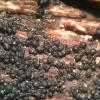
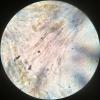
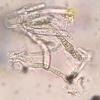
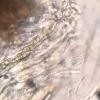
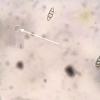
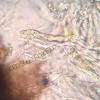
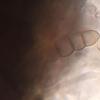
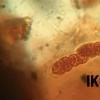
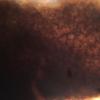
 Extracted-pages-from-1957-v17-n1-Munk-Pyrenos-0001.pdf
Extracted-pages-from-1957-v17-n1-Munk-Pyrenos-0001.pdf